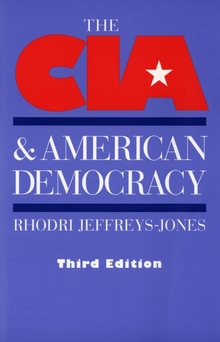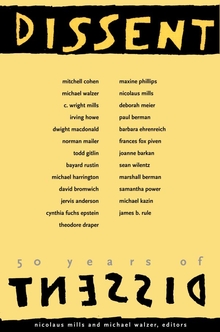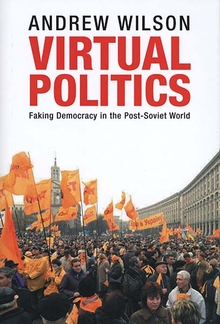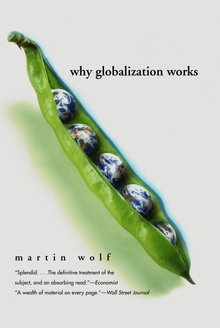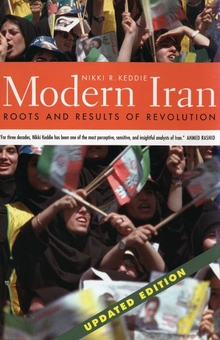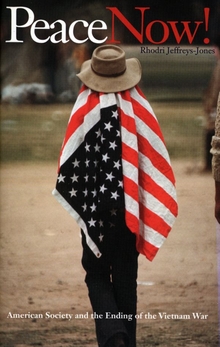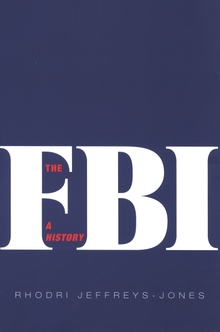The CIA and American Democracy
WARNING
You are viewing an older version of the Yalebooks website. Please visit out new website with more updated information and a better user experience: https://www.yalebooks.com
Third Edition
Rhodri Jeffreys-Jones
This third edition of Rhodri Jeffreys-Jones’s engrossing history of the Central Intelligence Agency includes a new prologue that discusses the history of the CIA since the end of the Cold War, focusing in particular on the intelligence dimensions of the terrorist attacks on 9/11.
Praise for the earlier editions:
“I have read many books on the CIA, but none more searching and still dispassionate. Nor would I have believed that a book of such towering scholarship could still be so lucid and exciting to read.”—Daniel Schorr
“This is one of the best short histories of the CIA in print, up-to-date and based on a wide range of sources.”—Walter Laqueur
“Judicious and reasonable. . . . A sophisticated study that should challenge us to take a more serious view about how our democracy formulates its foreign policy.”—David P. Calleo, New York Times Book Review
A brief, yet subtle and penetrating, account of the Central Intelligence Agency."—Leonard Bushkoff, Christian Science Monitor
"Subtle and crisply written. . . . A book remarkable for its clarity and lack of bias."—William W. Powers, Jr., International Herald Tribune, Paris
"I have read many books on the CIA, but none more searching and still dispassionate. Nor would I have believed that a book of such towering scholarship could still be so lucid and exciting to read."—Daniel Schorr, Senior News Analyst, National Public Radio
"This even-handed and comprehensive study of the CIA is a book people will turn to for the historical story, for a sense of continuity, and for the larger picture of the interaction between democracy, the public, and intelligence agencies."—Robin Winks, author of Cloak and Gown: Scholars in the Secret War, 1939-1961
"This is one of the best short histories of the CIA in print, up-to-date and based on a wide range of sources."—Walter Laqueur, Chairman of the International Research Council at the Center for Strategic and International Studies
"A compelling read. . . . A solid and dispassionate account of the agency since its birth in 1947 that draws on verifiable sources."—Sajid Rizvi, Academic File
"One of the many merits of this scholarly and stimulating book is its evaluation of the CIA's historical record in terms of the issues raised by intelligence theorists. . . . This outstanding study, wide ranging in its implications, makes necessary and compelling reading, not only for specialists in intelligence and the sources of American foreign policy, but for all those concerned to reflect on some of the most difficult issues raised by the principles of democratic accountability and control."—Margaret Blunden, American Politics Review
"This study is an important corrective of the kiss-and-tell books by disaffected operatives or ax-grinding apostates."—Peter Hayes, Annals of the American Academy of Political and Social Science
"This excellent study, written by an historian, places the CIA and its work in proper historical perspective. . . . It is well and clearly written, fully documented and will repay careful study by all persons—politicians, civilians and persons involved in intelligence work—who are genuinely concerned with issues of national security in this best of all possible worlds."—Bob Swan, Australia and World Affairs
"Rhodri Jeffreys-Jones has produced an effective appraisal of the complex relationship between the US Central Intelligence Agency (CIA) and the political structures of the world's major liberal democratic state. . . . [It is] well-balanced and rooted in a meticulous study of a wide range of sources."—Acun Munslow, British Association for American Studies Newsletter
"A brief, yet subtle and penetrating, account of the Central Intelligence Agency."—Leonard Bushkoff, Christian Science Monitor
"Unlike every other book I have ever read on the subject, this is a work with no ax to grind, no mistakes to hide or justify. . . . Comprehensive, lucid and easy to read. . . . Jeffreys-Jones has done us a great service by showing the CIA and the men who shaped it, not in isolated majesty, but within the larger context of the society if serves. This is a valuable book, well-worth reading."—Francis Hamit, Daily News-L.A. Life
"Widely researched and readably short."—Robert Treverton, Foreign Affairs
"Present[s] solid history and background on intelligence and its evolution for America in the post-World War II period. . . . [A] thorough, in-depth look at the . . . period. . . . Jeffreys-Jones deal[s] with critical issues of intelligence in a democracy—the problems of political control, keeping the CIA out of politics, and the relationship of `pure' intelligence-gathering to covert operations."—John D. Stempel, Foreign Service Journal
"A well referenced, lucid and highly readable account of the CIA from its inception in 1947 through to the 1980s. . . . Anyone with an interest in the US and world affairs since 1945 simply cannot afford to ignore this book—it's too good to miss."—Good Book Guide
"Subtle and crisply written. . . . A book remarkable for its clarity and lack of bias."—William W. Powers, Jr., International Herald Tribune, Paris
"This is the first [book] . . . that sets out to detail the CIA's activities between its origins and the Iran-contra debacle, and place those activities within the larger question of how—or even whether—the Agency fits within a democratic system. . . . This is an important book that goes to the heart of the question that Tocqueville raised about democracy's inability to conduct foreign policy."—Walter LaFeber, International History Review
"This book is the most analytical study of the CIA and its functions published in years."—John Barkham Reviews
"[A] detailed and well-documented history of the CIA from its founding in 1947 to the present."—Lewis Regenstein, Journal Constitution (Atlanta)
"Future students of intelligence will be grateful to Jeffreys-Jones for [his] dispassionate judgments."—Robert D. Schulzinger, Journal of American History
"This is a highly readable, scholarly and well documented account of the position of the Central Intelligence Agency in the American policy process since its foundation in 1947. Beginning with the historical legacy of American intelligence efforts in the twentieth century it chronicles the debates over the kind of organization that the United States needed for its new international role, arguing that the fear that the new body could become a 'gestapo' left a powerful legacy in popular and congressional attitudes to the Agency. Jeffreys-Jones traces the development of the CIA as an intelligence agency and as an arm of covert action through the 'golden age' of the 1950s, to the decline of the Agency's reputation in the 1960s and the Bay of Pigs, exposures of covert activities and subordination to the policies of Lyndon Johnson. . . . Stimulate[s] thought about the role of intelligence in the American system as well as providing a useful history."—Robin Brown, Journal of American Studies
"Straightforward. . . . Studies of secret intelligence have often been weak and suspect because of an absence of verifiable documents: The CIA and American Democracy is therefore a refreshing break with the past."—Philip Khoury, Journal of Interdisciplinary History
"A dispassionate, comprehensive study of the CIA from its inception through the mid '80s. . . . Thorough, clear, and readable."—Kirkus Reviews
"Using documentary and scholarly sources, this book traces the history of the CIA from its founding in 1947, analyzing the relationship between secret intelligence institutions and democratic society. Jeffreys-Jones follows the CIA from Bogota to Cuba, describing its operational strategies, its leadership, and its relationships with various presidential administrations."—Law and Social Inquiry
"The author brilliantly places the fluctuating status of the CIA in a political context, discussing the agency's popularity as an enforcer of Cold War foreign policy during the 1950s, its decline in the early 1970s because of the Bay of Pigs and Vietnam, and its attempts to rehabilitate its image in the 1980s. Thoroughly researched, eminently readable, and highly recommended for espionage buffs as well as specialists."—Library Journal
"A distinguished addition."—Robert Cecil, London Times Literary
"This book is highly recommended for both the intelligence professional and those with an interest in the CIA. It is informative, well documented and is a well produced addition to the volumes previously written on America's premier intelligence agency."—Captain Rich Ugino, Military Intelligence Professional Bulletin
"Jeffreys-Jones . . . surveys the whole postwar history, from Harry Truman to Ronald Reagan, to assess how the agency has fitted into American democracy and with what consequences for its effectiveness as an intelligence organization. . . . Judicious and reasonable. . . . A sophisticated study that should challenge us to take a more serious view about how our democracy formulates its foreign policy."—David P. Calleo, New York Times Book Review
"Plausible. . . . The research is impressive, the prose polished, the stories interesting. . . . This is a readable and fair overview of the agency's political history."—Adam M. Garfinkle, Orbis
"Jeffreys-Jones has succeeded in compiling a detailed, unbiased history of the CIA. . . . [and] has written a very readable, richly detailed book. . . . Well worth reading. Critics from the left and the right have a special obligation to measure their charges against this favorable account of the CIA's role in American foreign policy."—Vaughn Altemus, Peace Review
"A sympathetic and well-written book. . . . An enjoyable volume that will inform the general or novice reader."—Dalton A. West, Political Science Quarterly
"Drawing upon a variety of scholarly sources, together with verifiable documents, this volume provides a history of the Central Intelligence Agency (CIA) and its operation within a political context."—Sage Public Administration Abstracts
"Written with a new preface that discusses the Central Intelligence Agency (CIA) in the post-Cold War era (the Gulf War, further revelations on U.S. complicity in the overthrow of Guatemalan democracy), this book provides a comprehensive history of the CIA by looking at those factors that have diminished or increased its effectiveness."—Sage Public Administration Abstracts
"From its provocative opening assertion that democratic survival depends upon secret intelligence, The CIA and American Democracy presents a sympathetic yet balanced survey of the Central Intelligence Agency. Based on impressive research, it is the latest work on U.S. espionage by its author, University of Edinburgh historian Rhodri Jeffreys-Jones. . . . A fine introduction to the subject."—Mitchell K. Hall, The Historian
"Its contents bear reflection."—Phillip Whitehead, The Listener
"A scholarly but readable history of the CIA, focusing on the factors that have made it effective at some times and ineffective at others."—Robert Wilson, USA Today
"This is a thorough piece of scholarship deserving careful study."—Virginia Quarterly Review
"The year's only comprehensive book on the Central Intelligence Agency."—David Wise, Washington Post Book World
Publication Date: February 8, 2003

